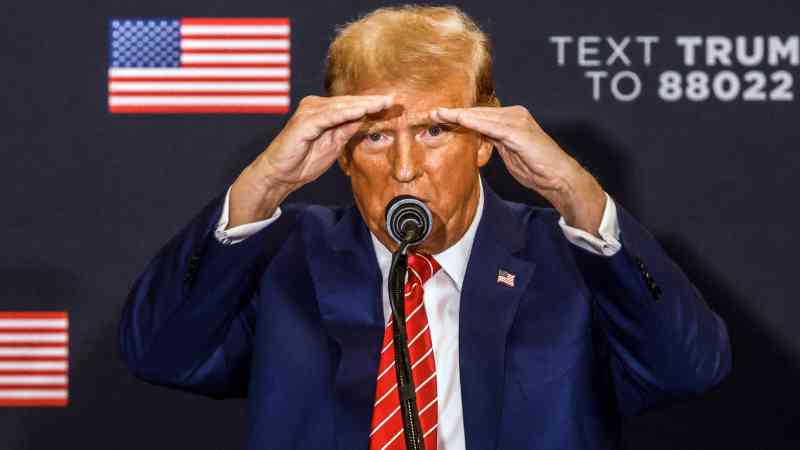Disinformation driven by AI is the biggest immediate risk facing the world, according to global experts, who have warned of deepening societal division in an important electoral year.
For the first time the World Economic Forum’s annual risk report, which surveys 1,500 policymakers and risks, identified “misinformation and disinformation” from foreign and domestic actors as the most acute risk facing the world over the next two years.
Extreme weather events, societal polarisation, cybersecurity and the threat of inter-state conflict made up the rest of the top five list of global risks in 2024.
The report, published before its annual meeting in Davos next week, found that just under a third of its respondents highlighted “false information” in its two most severe risk categories for 2024 — a year in which more than 70 countries and a record 4 billion people are due to vote.
The packed electoral calendar begins with elections in Taiwan this week, and includes a presidential election in the United States, a general election in the UK, and votes for the new European parliament. India, Mexico, Indonesia and Russia are also among the countries due to hold elections this year.
The report said the spread of disinformation could “radically disrupt electoral processes in several economies over the next two years”, adding: “A growing distrust of information, as well as media and governments as sources, will deepen polarised views — a vicious cycle that could trigger civil unrest and possibly confrontation”.
Despite regulatory attempts to crack down on social media platforms, the risks from disinformation have become more acute in recent years with the widespread use of AI technology to develop deep fakes and amplify the propagation of false messages, the report said.
• 2020s on course to become ‘decade of wasted opportunity’
“The difference between AI and human-generated content is becoming more difficult to discern, not only for digitally literate individuals, but also for detection mechanisms,” the WEF said. “For example, an AI-generated campaign video could influence voters and fuel protests, or in more extreme scenarios lead to violence or radicalisation, even if it carries a warning by the platform on which it is shared that it is fabricated content.”
Climate-related threats dominated in the longer-term ten-year risk category, which was led by extreme weather events and also included critical change to earth systems, biodiversity loss and natural resource shortages.
The threats from inflation and an economic downturn were reduced in 2024, according to the experts, who last year isolated the cost of living crisis as the biggest threat to the world economy.
This year’s Davos meeting is titled “Rebuilding Trust” and those attending include Li Qiang, the Chinese premier, and President Milei of Argentina. Jeremy Hunt, the chancellor, will also be attending the four-day event in the Swiss mountain resort.
Saadia Zahidi, the WEF’s managing director, said: “World leaders must come together to address short-term crises as well as lay the groundwork for a more resilient, sustainable, inclusive future.”
